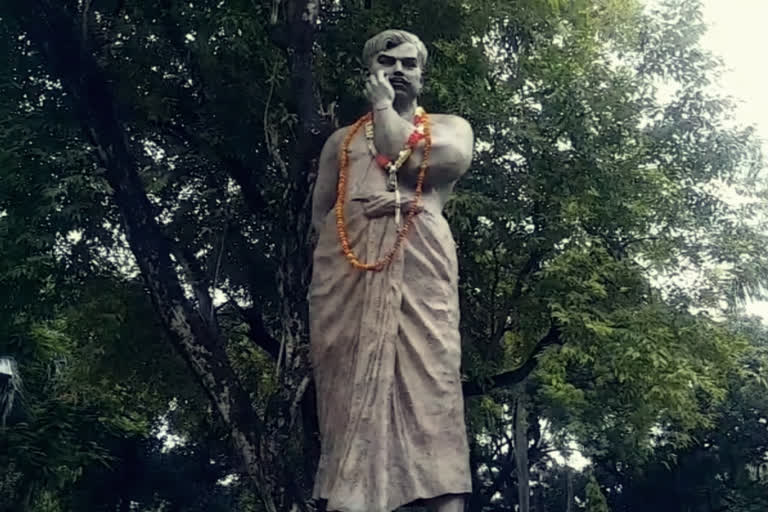Hyderabad:"We will face the bullets of the enemies; we are free & will remain free." This slogan by Chandra Shekhar Tiwari popularly known as Chandra Shekhar Azad lit the spirit among the youth to fight for the country. Not only his life but his death also sparked a revolution during India's freedom struggle.
Many revolutionaries sacrificed their lives to free our country from the slavery of the British and the result of the sacrifice of these revolutionaries is that, we are living in a free independent and democratic country.
Born in July 1906 in the Alirajpur district of Madhya Pradesh, Azad was associated with Mahatma Gandhi's non-cooperation movement at the young age of just 15.
When arrested by the police and presented before a magistrate for having participated in Gandhi’s noncooperation movement (1920–22) at Banares ( now Varanasi), he gave his name as 'Azad' (which in Urdu translates to 'Free or Liberated'), his father's name as 'Azadi' (Freedom) and mentioned his address as 'prison'.
Although he was not imprisoned due to his age, he was brutally whipped by the police.
Following the incident, the Indian National Congress soon glorified him, and this led to Azad gaining popularity among the masses. This was the day after which Chandrashekhar Tiwari came to be known as Chandra Shekhar Azad.
In February 1922, when several policemen were killed by a revolutionary mob at Chauri Chaura, Mahatma Gandhi suspended the non-cooperation movement. Azad was disappointed by Gandhi’s suspension of the non-cooperation movement and had joined the radical Hindustan Republican Association (HRA).
On 9th August 1925, the Hindustan Republic Association carried out a train robbery (Kakori Train Robbery) to obtain funds for its armed struggle against the British. Azad was part of this robbery along with 10 HRA members.
